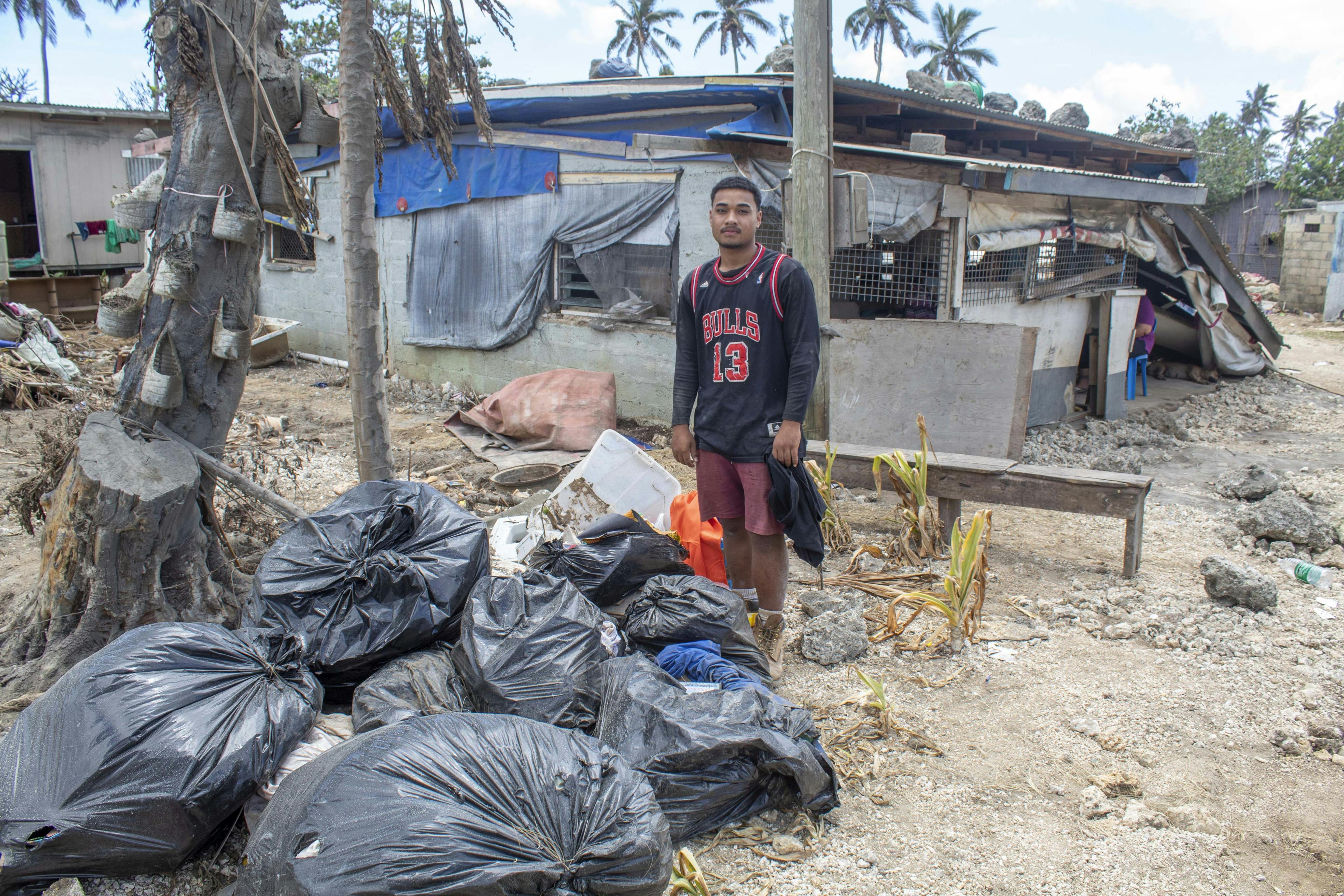
UN0582144
“The events of the night are still haunting them today.”
Home
Stories
The events of the night are still haunting them today.
Reaching children and families with psycho-social support in Tonga.
A few days after the volcanic eruption and tsunami in Tonga, Pasepa Ve'ehala, a psycho-social support (PSS) volunteer was deployed to carry out PSS activities in the worst affected islands in the Ha’apai Group.
“We provided PSS to children by doing activities with them such as playing games, drawings, and singing songs,” says Pasepa.
“The PSS activities we conducted with children helped to reduce their fear and anxiety.”
Children communicate through play, and non-intrusive recreational activities allow young people to cope with stress and prevent them from developing serious mental health problems following difficult experiences such as natural disasters.
"At the same time, we also provided emotional support to the parents and teenagers, helping them share their stories and aiding them to get out of their fear.”

UN0582133
Pasepa was trained in psychological first aid in 2021, in a course organized by the Ministry of Internal Affairs (MIA) and supported by UNICEF. She says the most critical need in the long term will continue to be PSS, as families are psychologically and emotionally affected, which takes time to come to terms with.
“The events of the night are still haunting them today,” she says.
“They cannot forget trying to sleep inside the tents upheld by men until daylight to provide shelter for the children and women. Children could not sleep at night for days, afraid that the tsunami will hit their island again while they are asleep, and many families still cannot accept the fact that they have lost their houses and belongings.”
Mental health and PSS is essential for improving the well-being of children affected by humanitarian emergencies. Failure to address mental health and psycho-social issues has detrimental long-term effects on children’s development, whilst hindering their meaningful participation in society.
In the Pacific and globally, UNICEF works to strengthen the resilience of children and their families, and to help them cope with adversity during and after a crisis by creating a nurturing environment that provides a safe space for a child’s optimal development.
And like after any disaster, PSS was crucial in the aftermath of the volcanic eruption and tsunami in Tonga, especially with this emergency being unique to the country and a rare event, since the Pacific is usually more prone to cyclones than to tsunamis.
“It was obvious as we approached the communities, they were more than willing to cooperate, with town officers getting children together for therapeutic play and parents too being very supportive by making sure their children attended,” says Pasepa.